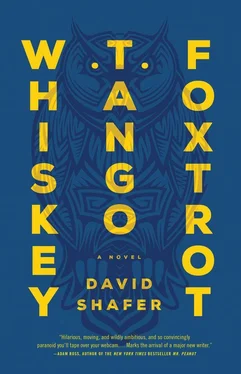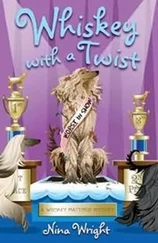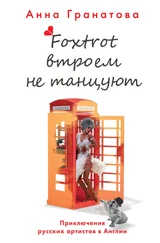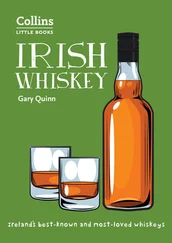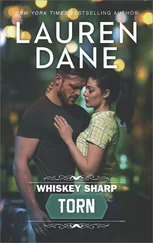Mark didn’t mind being the kind of alcoholic with a lot on his mind, the kind who maybe fumbles with his keys. But that self-abduction shit — where you take leave of yourself, and a ghoul takes over instead, and the night comes back at you the next day, memories like shredded documents; the gut wrench of wanting to know exactly what you did and not wanting to know at all — that was the kind of alcoholic he minded being. And once he’d become a recognizable low-order celebrity, the damage that an unsecret blackout drunk might do to his career…the thought made him sweat.
So he forced that kind of behavior into submission by hating himself incandescently for days after those drunks transpired. And it worked. He had not self-abducted for a while now. If he felt it coming on, he taped a sheet of paper to the inside of his door with a command in Sharpie: Don’t . So he had been able to forget about his ghoul, to think of him as a tormentor from an earlier time, like a bully from the eighth grade. When a zillionaire actor was caught on cameraphone drooling racial slurs, Mark joined in tsking and glee, though in his secret heart, he felt for the poor bastard.
The thing was, there was some overlap in the behavior patterns of the productive artist and the self-aware addict. That was problematic. Or anyway, it contributed to Mark’s confusion: Was he a serious writer or a freakishly lucky drunk pillhead? There was a lot riding on the answer.
He left the flat to smoke, bringing his laptop with him. This was a good idea. Who could work in that strange, silent apartment? It was a beautiful day outside, people charging all around.
The spliff did indeed get things going again. Though there was a syrupy quality to the hash high that he didn’t like, a gumming-up, like ten thoughts were happily walking along but then suddenly had to squeeze through a narrow gate. He was almost run down by one of those black cabs, coming as they do like Valkyries, and from the wrong direction. That got his heart pumping.
Mark loved London. In the two months he’d been here — trying to write, not writing, drinking alone, and attending almost daily to the needs and ego of his patron Straw — Mark had crisscrossed the place heavily. He liked to go on long, ale-smeared journeys across its broad gut, as unbusy as an indigent. Today, though, he was going to stay on task: find another coffee, maybe a muffin, and then a quiet place to write.
He was outside some sort of toy museum near Bethnal Green. Intriguing. It wasn’t really quiet, but there was a café.
He started treating his hangover with careful, holistic self-retoxifying — drinking a string of bitter coffees and ducking out for cigarettes and then another spliff. After a while, he felt okay enough for a chicken salad sandwich and a couple of minibottles of white wine. And he was writing. As his mood improved, he thought he might see a way to write the book Blinc wanted. There were rules to life, certainly. Or probably. And there was nothing wrong with trying to divine them.
After every five hundred words he’d take a wander, past a taxonomy of wooden yo-yos and cases displaying examples of something called toy theater, which was apparently big in the nineteenth century. Then he’d write another five hundred words and then return to an artifact that had caught his eye, like the Victorian board game for children called Virtue Rewarded and Vice Punished.
Remember what it was like when you were a child was his starting point, and pretty soon he’d cranked out a thousand words. It’s not that children were innocent, obviously (he had just seen one boy in the café find the tipping point of his little sister’s stroller), but they poked at life scientifically. They analyzed data and drew conclusions; they started from scratch. After some point early in our lives, we forget to do that, thought Mark. So in a certain way, growing up was the opposite of the loss of innocence.
He thought of the possessions he’d loved when he was little. There was a toy called Stretch Armstrong, a rubberized, Speedoed wrestler doll; you could stretch him to great lengths and he would reshape himself. But you could not stretch him as far as Mark had tried to stretch him once, with the aid of some clothesline and two cinder blocks. What a disappointment that was. Stretch turned out to be filled with some sort of lab-accident green goo.
What else had he loved? His dog, his mom, and a doll named Sasha. Mark had loved Sasha in the way that little boys were not supposed to love dolls. Maybe it had something to do with the little sister who had been stillborn a few months before his father left. When people asked him if he was an only child, he said yes but he sometimes thought no.
He had certainly become something of an only adult, though. What had happened to his friends? He had had friends. Back in college and for a few years after that — people who would have come over in the middle of the night; people to whom he would have gone in the middle of the night, and did. But in the museum, sitting there with a clutch of cool postcards from the gift shop, he realized that he had more postcards than friends to send them to. He could not now see where he had gone wrong. True, he’d tossed away a few girlfriends, each one at somewhere near the point when you have to step up or get gone. But that was, finally, out of consideration for them.
“You don’t think you’re better off alone, do you?” his Lost Girlfriend had asked him once. He’d taken too long to answer that, and he’d seen her go cold.
But aren’t you supposed to learn to take care of yourself? Isn’t that what his mother had showed him?
And Leo Crane. What had happened there?
They’d met in Harvard Yard, on a sharp autumn day at the end of the last millennium; their friendship grew quickly and easily. Mark loved Harvard, but he hadn’t really liked being waist-deep in rich kids, all the prep-school princes who’d taken taxis to their orthodontists or who thought they were Keith Richards because a doorman could get them coke. Leo could have been like that but wasn’t. They tumbled through college together — careless, confused, and intent. Leo needed someone who could talk fast and wouldn’t back down; Mark needed a bit of restraint.
Leo, whose family was full of love and money but was also full of expectation, was jealous of Mark’s scrappier growing-up. Mark loved the Cranes for their erudition and for the array of guest rooms on offer in their gloomy Beaux Arts mansion on Riverside Drive. The Cranes probably hoped that some of Mark’s sharp charms would rub off on Leo, who had a habit of hanging back.
Had he ever taken advantage of Leo? Mark thought not. He borrowed money a few times, but he’d paid back almost all of it. And anyway, anyone who knew the two of them in those years could have told you that Mark did more emotional heavy lifting for Leo than straight guys usually do for each other. Like when Leo’s mom and dad and the greyhounds perished in the fire. Or when it became apparent that Leo’s bookstore was doomed, and Leo’s sisters called Mark and asked him to go up to Rhinebeck to talk him down and out of it.
But Mark and Leo had drifted apart in their thirties. This was more Mark’s doing than Leo’s — he’d just quit trying, let entropy and avoidance do their thing. He felt a bit shitty about that. But the same mental issues that had made Leo a cool, brooding undergraduate and an edgy twenty-five-year-old made him an annoying thirty-six-year-old was how it seemed to Mark. It was fine and valid to be a manic-depressive, but if you were also independently wealthy, that should be seen as a sort of karmic compensation; after a while, you shouldn’t really complain out loud.
Plus there was the Leo-like character who had ended up in Bringing the Inside Out, which had probably given offense, of course. Mark hadn’t meant to leave him in there, but Blinc’s editors loved that chapter, and in the end Mark had brought that character forward. So he’d had to drop Leo once the book blew up. He actually dodged his calls, left e-mails from him unopened.
Читать дальше
